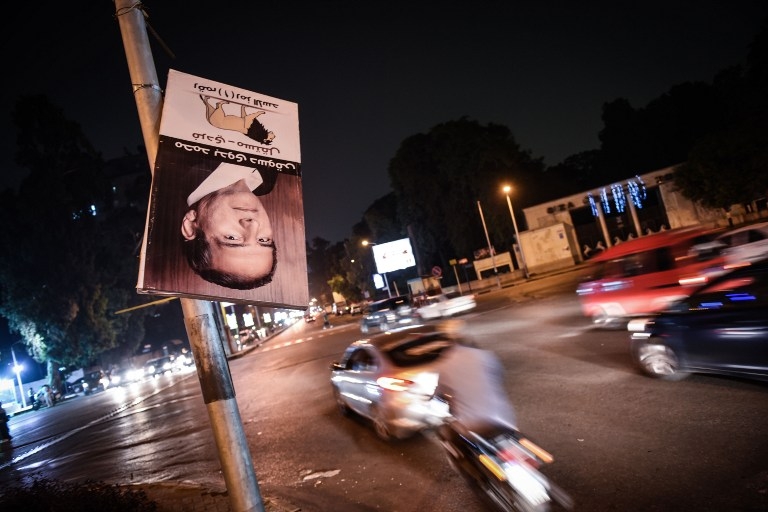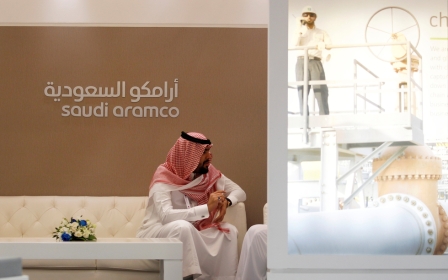Sisi on a hot tin roof

Over the past 10 days, Egyptians have taken to the airwaves and video to say "enough is enough" in terms that demand attention.
There is no explosion around the corner. Instead, a process has begun that indicates patience, especially in the lower economic rungs of society, is evaporating - and quickly.
In the same way most of the world was surprised by the January revolt, a bubbling of distinct, yet undefinable anger may yet shock us all
In 2013, Sisi stood on the roof, talking to millions of willing Egyptians. Three years later, with the brief honeymoon a distant memory, that roof, we are discovering, is both hot and tin.
Many continue to believe that an uprising, similar to the one which began on 25 January 2011, is not in the offing. And while 25 January 2.0 is a distant mirage, four recent videos that deserve close examination indicate an increasing probability of a significant faceoff within months.
Indeed, the opposition, with more than 60,000 political prisoners, is no condition to lead an organised revolt. However, disorganised but burgeoning anger is beginning to outpace traditional centres of political opposition.
In the same way most of the world was surprised by the January 2011 revolt, a bubbling of distinct, yet undefinable anger may yet shock us all.
‘Start the count down’
Signs are there for those willing to look. When Amr Laithy’s popular show One of the People ventured into the street last week, it turned a tuk-tuk driver into a spokesperson for every man.
Why can be answered by a reading tweet from Amir Eed, a singer in Egypt’s revolutionary band Cairokee: "The people no longer believe the lies of the local press. They no longer believe it. Done. Start the count down."
Mustafa, the driver, ultimately proved to be the initial spark of a very different kind of faceoff - one sparked by the economy, one that centres on class.
“We watch TV and you would think Cairo is Vienna, but go to the street and it is Somalia’s cousin," started Mustafa. Voice rising and dripping with passion, he continued: "You go spend untold billions on mega-projects and our education is at the lowest level possible?"
His education level? "School of Tuk-Tuk" A unique frankness and lucidity resonated with Egyptians to such a degree that wherever you turned over the past week, whether TV, Twitter or Facebook, there he was.
“Three things for this country to rise: education, health and agriculture…give us those three things and we can tackle anything,” he said. Agree or disagree, in an age where saying far less can land the average Egyptian where the sun don’t shine, this man’s honest hammer blows lit a fire and exemplified a rising wave of discontent among the downtrodden.
In a country where the poverty rate is 27.8 percent and those living in vulnerable conditions are in the tens of millions, you anger them and no army or police force will contain that near nuclear explosion.
Video whack-a-mole
And the media powers-that-be know anger is growing. Their solution? Remove the video. The very next day Al-Hayat TV removed the video. But remove one and four more pop up, nearly instantly in this case.
“You removed the video? That’s all you are capable of… are you that scared of us Mr President of the Arab republic of Egypt?’’ said a young, unidentified woman, three days after the tuk-tuk video.
Those sweating in governmental panic rooms don’t hide fear well and Egyptians, whose patience is thin, recognise fear when censorship rears its ugly head.
"You are basically tape,” she said, speaking of the government. "You want to put it on our mouths and tell us to be quiet." Though likely only in her 20s, the woman was spot on.Without question, the regime has sought to project a war-time mentality, one seeking to silence all in the name of national security. Only this war is one waged by regime against citizen.
Blood-sucking fat cats
Some basic goods, particularly vegetables and fruits, will rise and fall seasonally, but where the government failed miserably was the inability to forecast soaring inflation, from 9 percent in February 2016 to 16.4 percent only six months later.
A monumental sugar crisis forced Reuters to report this week that the government was caught off guard. Some accuse the army of looking to monopolise sugar as it has with other products and services while arresting ordinary Egyptians for hoarding amounts as small as two kilograms of sugar.
With spectacularly bad planning, an inability to read the international sugar market paired with inaccurate forecasting of the meteoric rise of the dollar resulted in importers not importing the necessary additional million tonnes.
Egypt requires three million tons of sugar annually, but only produces two million tonnes. The additional million is acquired through import but "no one is willing to source dollars for this, it is way too expensive,” a sugar trader told Reuters.
As usual, the government is mum on causes and even more silent on solutions. So the cycle continues and anger fuels the engine of potential conflict.
When ordinary citizens outline, to a T, the policy failures of those in charge, we know that something is rotten in the state of Egypt, with strong apologies to Shakespeare.
"The fat cats have been sucking our blood for over 50 years…we - the common people - are going to start stealing from one another," a woman, the head of a household of four, told an opposition website.
Knowing how Egyptian censorship works, she asked the interviewer if her words would be aired. Assured they would, she plowed ahead.
“Look at us," she said, pointing at a gathering crowd all of whom looked to be economically challenged. “That’s three quarters of Egypt." But she had zero confidence in the big whales in control of both media and politics to fix their problems: “They are all liars and hypocrites and making millions off the back of these poor people.”'We've got none of it'
While socio-economic troubles played a role in 25 January, the clarity of the class divisions in the current fast-developing tornado is not only evident to analysts.
It is equally clear to the very victims suffering under a ruling class of ultra-hawks with one priority and little else: the evisceration of the Muslim Brotherhood. This politically self-serving obsession with the Brotherhood has helped Sisi consolidate public support, but has caused national security-threatening fissures within an already divided society.
Political Islam, without an inkling of doubt, deserves healthy heaps of criticism for failed governance. Notwithstanding, there can be little doubt that the Sisi option has brought Egypt far closer to the knife’s edge. In fact, a recent Foreign Affairs piece argued that by “exporting its central domestic conflict, the repression of the Muslim Brotherhood" Egypt has had a "devastating effect" on its neighbours.
That lack of correct prioritisation was not missed by Shershoub Hamam, from southern Egypt, who left both diplomacy and fear behind, during his recent video: "We are begging and every day you are on TV asking for change?"
Showing a keen political eye, he deftly explained, "No nation ruled by the military will succeed. Success comes from specialisation. Each handles his specialty."And though many, including myself, question who may be behind calls for demonstrations on 11 November, this one particular man showed zero fear of wading into troubled waters.
"This president is an employee like any other…we are tired…we have lost our breath…you want to leave peacefully leave, if not we will force you."
"We will go on 11/11 ready to die,” he said. It is uncertain who is behind 11/11, but you cannot doubt the seething anger and nationalism of this man and the growing subsection he embodies.
"Our revolution demanded justice, freedom and bread and we've got none of it," he concluded.
As we deconstruct what the future holds for Egypt, keep this fact above the rest: the anticipated floating of the Egyptian pound has yet to take place, but it is already near collapse.
With a currency heading downhill faster than a race car, the risk of hyper-inflation and a boiling pot, Egypt is, defiantly, singing Gloria Gaynor’s anthem "I will survive".
Problem is, the sentiment, under the current circumstances, is merely wishful thinking.
- Amr Khalifa is a freelance journalist and analyst recently published in Ahram Online, Mada Masr,The New Arab, Muftah and Daily News Egypt. You can follow him on Twitter@cairo67unedited.
The views expressed in this article belong to the author and do not necessarily reflect the editorial policy of Middle East Eye.
Photo: In the Giza district of Cairo, cars drive past a banner bearing a portrait of Sisi during for the parliamentary elections in October 2015 (AFP)
New MEE newsletter: Jerusalem Dispatch
Sign up to get the latest insights and analysis on Israel-Palestine, alongside Turkey Unpacked and other MEE newsletters
Middle East Eye delivers independent and unrivalled coverage and analysis of the Middle East, North Africa and beyond. To learn more about republishing this content and the associated fees, please fill out this form. More about MEE can be found here.





